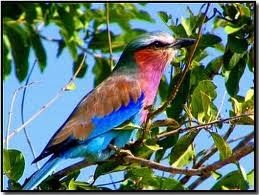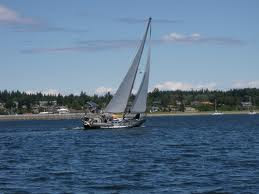Kenya
Sunday, December 26, 2010
'And so it is Christmas, and what have you done ...'
As usual, a few stories and thoughts to bring this trip to a close.
Bridging the Gap
Last week I made my final trip on the bike up to the Cherangani Hills, and then beyond to Marich Pass where the Moruny River runs out toward Turkana to the north. I stayed at Marich Pass Field Studies Centre, a remarkably serene riverside site, a legacy to its founder Dr. David Roden. http://www.gg.rhul.ac.uk/marichpass/welcome/aboutmarich.htm
On my second night there, I meet Harmon Parker, an American who has lived in Kenya for over 20years, devoting his life to 'bridging the gap.' Harmon had just returned from the States, where his remarkable efforts to transform rural Kenyan lives had been recognized at a high profile event. http://www.bridgingthegapafrica.org/
I visited one of his projects and we spent a few nights at Marich. Despite his new noteriety, and the attendant flurry of attention, interest and email, there he was in the bush preparing the site for a new bridge. I tip my hat to Harmon, well deserving of his 'hero' recognition. Please check out his website for details.
Kenya!!
The case of the caddy
My CHES colleague Margaret plays golf each week in Kakamega. Her caddy is Kizito, a young Kenyan who keeps track of her ball, polishes her clubs, and ensures a good lie for the next shot, whether its deserved or not. In the midst of our Christmas we get a phone message to say that Kizito had died, purportedly due to drinking 'changaa', a sometimes lethal home brew that claims lives in Kenya every year. A sad, but all too frequent occurence here.
However, on further investigation, the story now is that he succumbed to poisoning of a different kind.
What poison potion you ask? Well, after you've caught the chameleon, you skin it, dry its hide, and then reduce to powder - viola, poison for your foes!
Perhaps there will be further installments on Kizito's demise, but for now chameleons are implicated, and Margaret on the lookout for a caddy.
Barclays Bank
Just prior to Christmas I sold the noble Yamaha 100 to a Kenyan friend in Kakamega. It felt as if I had lost a limb, such had been our close connection for 5 months. The Yahama had taken me all over Kenya without complaint, even when the Rift Valley escarpments reduced us to second gear. Africa, I figure, is best seen at slow speeds anyway.
However I did recoup a fistful of Kenyan shillings to compensate for my loss, so off I went to Barclays Bank to convert shillings to dollars American.
First in line, I could see the young teller look nervously as the mzungu approached the wicket; not his choice for first customer of the day on Christmas eve. We attempt communication, blocked by security glass, and also complicated by the versions and accents of English we bring to the event. I want $500US. He begins calculations, not on a machine, but on a pad of paper that's been used for all kinds of notes and numbers already. I know the answer to his calculation - the buying rate is clearly posted high on the bank wall, alongside Euros, pounds etc.
"That will be 4,475 shillings." "Really... you're sure?" I respond. He confirms, and the transaction proceeds.
Transactions take time at Barclays, and I'm using the only cashier on hand. I can feel the accumulated weariness of the growing line of Kenyans bearing witness to the mzungu, ensuring a slower than usual start at the bank today. A screen is consulted, the cashier withdraws, a supervisor is summoned, the line up grows and shuffles, the American 100s appear, the clock ticks. After 12 minutes we are ready to proceed. He requests my Kenyan shillings. "4,475" I confirm. Indeed it is. I know that my passport will be required, and my identity assured, but there is still a moment when I see myself exiting Barclays having purchased dollars for one tenth of their value. But I cannot bring myself to ruin this poors mans Christmas, and I suggest he check his calculations. A visible twitch, well more like a small jolt, followed by a sheepish smile cross his face, and the transaction continues, albeit more accurately.
Update on Ocampo (see previous blog)
Two weeks ago the ICC chief prosecutor named six prominent Kenyan politicians and public figures whose names and evidence he's forwarded to the ICC judiciary to determine whether criminal charges will be brought in connection with promoting the post election tribal violence in 07/08.
This has created great political upheaval and public debate in the country. Kenya had the opportunity to investigate its own 'dirty laundry' surrounding the violence, but could not generate enough political will to do so, and now its ended up at the Hague.
In a show of just how weak willed and self interested the political class are here in Kenya, the parliament has since voted unanimously to withdraw from the ICC. This wont stop the Ocampo prosecutions from going ahead if warranted, but it does demonstrate that Kenya needs a new generation of leaders who will deal with the corruption and attentant impunity that its current political class are unwilling to do so.
Saiwa Swamp
This the smallest national park in Kenya, but reputed as one of the very few places to see sitaunga antelopes. They live happily in the wetlands and viewing towers have been built to assist spotting. Its close to Kitale in the Cherangani Hills, and on my way to Marich, so why not.
Well, I dont end up seeing the elusive sitaunga, but do encounter these other interesting critters on my walk.
Tuesday, December 7, 2010
Reflections


 Standby for news from Kenya before Christmas.
Standby for news from Kenya before Christmas.
Just a few weeks to go on my Kenya adventure, and home in time for new year!
Saturday, November 27, 2010
Problems in Paradise
For the past two weeks I've been on the north coast of Kenya, a shore set with white beaches, mangroves, coral reefs and happy, welcoming people. So how could there be problems in paradise?
Well, to step back a moment, and examine this exercise called blogging.
I was persuaded a few years ago on another trip to blog, but my question has always been, who's interested in what I'm doing, and why would anyone want to read about it?
I'm doing it, so what would an aging, greying, ex teacher from BC have to say that could possibly be of interest? This feeling has been perpetuated recently in communication with the ND (nearest'ndearest) in BC who reports early snow and cold on the coast, so do people really want to hear about my early morning dhow trip yesterday from Lamu to Shela, a walk on the 7km crescent white beach concluded by a swim in the wonderfully warm waters of the Indian ocean, followed by a gentle downwind sail back to Lamu where the town is abuzz with the annual Swahili cultural festival - food, dancing, singing, sailing, donkey racing, talks and concerts filling the weekend.
If I'm waking up to snow and cold, hearing from the guy in paradise may, or may not, make me feel better? You see my dilemma. But there are other problems too ......
The perfect mango?
In Lamu I'm staying literally 30ft from the town market. A short stagger brings me to the fruit stalls early each day, but how to pick the perfect mango? Too ripe and they are too mushy and too sweet, but too early and they are hard, and tart beyond compare. The perfect mango is firm, yet foregiving to the touch, and judging this requires moments of careful handling, weighing, and contemplation; discussion and negotiation with the stall owner ensue. The perfect mango is both tart and sweet, if such is possible. Once sliced away from the pit, cubed against its skin and folded open, the yellow flesh becomes a sensual delight into which one dives face first, to emerge minutes later,hands, face and facial hair covered in delicious mango juice that requires a second face wash of the day.
Believe me its hard to get it just right, picking the perfect mango, and there's the issue of the strands of mango flesh that stick between the lower teeth...... so you see the problem, right?
And the problem is?
My first morning I wander out the waterfront in Lamu looking for some breakfast. Its just after 7 and not too many about yet. A grizzled fellow is enjoying a rollie on the seawall, and we exchange greetings. He's the owner, cook, waiter, of the Olympic, a modest hoteli right there offering the usual omelettes, fruits and juices. I become his first customer. At first I thought he might be Greek- his looks, the Olympic, but no, Asif is of Indian decent, not unusual here on the Kenyan coast.
What is unusual is that almost all his family are in BC. They left Kenya en masse in the early 70's for Vancouver, but after a couple of years he gave up on it and returned to Lamu. He loved the ocean, loved fishing. Now his family is established in Burnaby, Seattle, Calgary, and he's in Lamu. He lives with some regrets as he doesn't have the security and prosperity his brothers and sisters do, and maybe coming back to Lamu was a mistake.
I look out at his fishing dhows bobbing on the rising tide by the seawall, feel the warm breeze rising, hear the laughter from his family behind the curtain of the Olympic, and cant help but think that if I could choose waking up in Burnaby or Lamu on a morning in November, I know there'd be no problem.
Digo elders perform at Lamu Festival
Transportation - problem?
In Lamu there are no cars! I mean, how can you call yourself a town and have no cars, its the 21st century for christsakes. So with no cars here, no trucks, no buses, well it means you walk everywhere, walk ... remember walking! In sandals, or barefoot even. People stop in the street, greet each other, go to the bakery, the market, to the docks, to work, on foot.
There's no traffic jams, no road rage, no speed bumps, no traffic calming, no exhaust. They do have a transportation system, its donkey! Donkeys! the place is positively biblical!
These guys have a problem! Weird dude!
Kenya time - no problem
The program said 'Kasida from Mombasa' 20:00-22:00, 'Praful Kumar -Bollywood Music' 22:00-daybreak. So down to Mkungani Square in good time. The square in front of Lamu Fort is hardly crowded, in fact but for a few expectant mzungu tourists who cluster around seats under the jacaranda tree, the usual mix of full time square hangers-on and lingering youth, its pretty deserted. On stage, there is evidence of preparation, but its clear, nothing is imminent.
Not being one for waiting patiently, I head back to my room. I'll hear music strike up - I'm within easy earshot. Ipod on, I fall asleep easily in the warm evening breezes. At 22:00 I wake to "hallo, check, check" repeated over and over. At 23:00 I wake to music, but too comfortable to move, i listen from my bed! only to fall asleep again. Just before dawn I come to, the strains of Bollywood music in the air at 05:30. This part of the festival timing at least is accurate, they really are playing to daybreak. A few tunes later, mercifully it closes down, just in time for the roosters and the call to prayer. I wonder what the residual negative effects of listening to Bollywood music all night might be. Speaking in subtitles?
Sunday, November 14, 2010
Not seen in November on Dysart Rd






- hiking the rim of dormant Menengai crater
- stuck in a thunder storm in Menengai village, eating mukomu with locals, and fixing the bike
- riding cold at altitude on the equator, in diesel and dust
- visiting Nakuru where man began his story
- leopards lounging in trees, gnus migrating
- cheetahs on the hunt, and the unlucky Monday for a warthog
- hippos wallowing, giraffes loping, ringed mongooses racing,
- drinking tamarind juice and cassava chips in Mombasa
- playing marbles with kids, and watching soccer with adults
- lions posing, ostriches strutting, vultures and marabous picking bones on the Mara
- elephants dexterous trunks, and impressive scats
- chatting with old colonial Poms at the sailing club
- walking 14thC Swahili ruins
- marvellous birding (saddlebills, kory bustard, fish eagles, weavers)
- hyenas yipping and laughing at night
- swimming Indian Ocean waters
- vervet monkeys in baobob trees
So these are some things I wouldn't have experienced on Dysart Rd in mid November, but the one I'm missing on Dysart today is Kims b'day, so have a good one darlin' - see you for new years. with love - H
Wednesday, October 20, 2010
Coping with Kenya
we haven't had city water from the taps in a month(rain barrels are a blessing),
once one computer is fixed, another one goes down, the internet flickers on and off,
power comes and goes, and comes again,
the driving habits are deranged, and 'slaloming' is accepted to avoid potholes,
the poor are many, for whom each day is a struggle,
to 'eat' means taking your cut of whatever you can, from top to bottom of society,
the population has grown 50% in the past ten years,
unemployment/underemployment affects a similar percentage,
women are still an underclass, the 'big' man syndrome lives,
those who succeed are obligated to assist kin and friend alike, or their name suffers,
the forests are under immense pressure for farming from the growing population,
tribal rivalries and tensions are not far from the surface, the body politic strains as a result.
however....
living in community by supporting family and friends is ingrained,
the countryside in western kenya is lush and productive,
Kenya has coastal reefs and idyllic beaches, interior rolling highlands, alpine areas in the tropics, its northern half is desert en route to Sudan and Ethiopia, huge lakes in Victoria and Turkana,
lions, elephants, giraffes, rhinos, hippos, cheetahs, warthogs, zebras, leopards, wildebeests, monkeys, cape buffalo, hornbills, ibises, flamingoes, civets, aardvarks, hyenas, mongooses, gazelles, impalas, all live here, ...... puff adders, pythons, cobras, black mambas too,
a new constitution in August created a new sense of pride, expectancy and optimism,
people smile and laugh, and take time with each other,
making it easier,
coping with Kenya.
Working for a living
look at the row of 'shops' - to the uninitiated western eye it looks uninviting, dingy, rough.
we're used to shops, big and bright, inviting, cemented and clean, but not here, not in this block;
but look more closely, and evidence of entrepreneurial vigour sprouts abundant...
basic groceries, hairdressing, internet, all live here, eking a living from minimum space
across the street, stalls offer basics like tomatoes, onions and eggs, chipatis and mandazis are there too, potatoes, dried fish, welding, furniture making, fresh milk+yoghurt....
all within 30metres of my front gate.
these are people are making the best of the hand dealt them, in challenging circumstances,
seeing their industry and invention, i marvel at it, and wonder how I'd cope as a Kenyan.


For the love of the game
I brought 6 mini soccer balls with me-what better way to connect with Kenyans than to drop a ball, kick it around, and then leave it behind. Not a new idea, thanks to my friend Dave Ravenhill at Reynolds for the suggestion.
So on my Sunday morning strolls, I plant a ball inside my ball cap, where else?, and off I go in search of a game. Nice religious habit of a Sunday morning, in a religious nation.
Here are some recent, serendipedous, and extremely pleasant results,
coping with kenya via the beautiful game.


Winston and son
PS - the waters running tonight :)
Sunday, October 3, 2010
At the party
http://www.rondoretreat.com/
Monday, September 20, 2010
Signs to make u smile :)

 Not my first choice if I need medical assistance in Kakamega.
Not my first choice if I need medical assistance in Kakamega. Right up there with holy water, get yer blessed kerosene here.
Right up there with holy water, get yer blessed kerosene here. The big man sure knows how to put on a blockbuster show in w.Kenya
The big man sure knows how to put on a blockbuster show in w.Kenya
Send flowers ..... Interflora
Send money ...... Western Union
Send a cow? ........Heifer International of course
-in fact this is a legit, non profit that links donors who buy cows for those in need-really, google it
however the sign did make me smile,
"honey, you'll never guess what arrived in the mail today"


 Long Crested Eagle De Brazza monkey
Long Crested Eagle De Brazza monkey
















